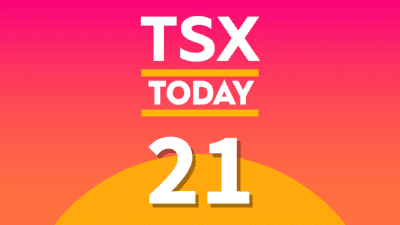I love the use of exchange-traded funds (ETFs), especially those that go out of their way to be cheap and tax-efficient. Minimizing sources of controllable risk like high fees and taxes paid can go a long way toward boosting your long-term returns.
In that respect, the ETF lineup from Horizons ETFs rank among some of my favourites. Using a unique swap structure, Horizon’s suite of total return (TR) ETFs are designed with tax efficiency and close tracking of their indexes in mind.
How tax efficient are they? Well, let’s just say buying and holding them could allow you to eliminate dividend tax and delay capital gains tax. Sounds too good to be true? Let’s take a look.
What’s under the hood?
Traditional ETFs hold a basket of underlying stocks and sell you shares of that basket. These ETF shares trade on an exchange and their prices fluctuate based on the underlying holdings.
Horizons ETFs, and in particular, Horizons S&P/TSX 60 Index ETF (TSX:HXT) and Horizons S&P 500 Index ETF (TSX:HXS) are quite different. Neither HXT nor HXS holds the underlying 60 and 500 stocks that comprise their respective indexes.
Rather, HXT and HXS use a derivative called a total return swap to replicate the performance of their underlying indexes. To do this, Horizons enters into a swap agreement with a counterparty. When you buy units of HXT or HXS, your investment is held in cash as collateral.
The counterparty is then obligated to remit to Horizons the total return of the index (capital gains + dividends). For example, if the stocks in the S&P 500 increase by 8% and pay a 2% dividend, the counterparty will pay 10% to Horizons (minus fees), and HXS will increase in price by 10% (again, minus the fee). The same goes for HXT.
What’s so good about them?
Firstly, the tracking error of both ETFs is incredibly small. Because the counterparty is obligated to deliver the total return of the index, they minimize turnover and the trading costs that come with traditional ETFs. The dividends are also perfectly reinvested, which boosts returns.
The management expense ratio (MER) for HXT is rock bottom at 0.03% due to the use of swaps. This is the cheapest you’ll find in the Canadian ETF market right now. HXS is slightly more expensive at 0.10% MER plus a 0.10% swap fee. However, buying HXS allows you to avoid the 15% foreign withholding tax on U.S. dividends, as there are none.
Finally, and perhaps most importantly, holding HXT or HXS in your taxable account is highly efficient. Because there are no distributions, you pay no dividend tax. Your only pay capital gains tax, which can be deferred until you are ready to sell. This reduces your tax drag significantly.
What are the risks?
Swap-based ETFs like HSX and HXT aren’t vanilla. They come with a unique risk profile. First up is counterparty risk, the possibility that the counterparty will fail to pay the annual return owed to Horizons due to insolvency.
I’m not worried about this. The main counterparty is a a Big 6 Canadian bank. It would be highly unlikely for it to default on this obligation. Horizons also has other counterparties lined up to take the other side of the trade if needed.
Moreover, if that did happen, the underlying index would likely be tanking and eliminate the counterparty exposure (the % returns owed, which are now zero or negative) anyway, and you would get the cash collateral held (your initial investment).
The second risk is regulatory risk. The government might eliminate the tax loophole that turns taxable dividend income into capital gains. It if happens, HXT investors would be forced to sell and realize all of those capital gains, which would cause a big one-time tax bill.
The Foolish takeaway
Investors using a taxable account can use HXT or HXS to eliminate dividend tax and defer capital gains tax. Both ETFs also have lower fees and less tracking error compared to traditional index ETFs of the same class. As long as you’re mindful of the counterparty and regulatory risk, HXT and HXS can be an excellent long-term core allocation in a taxable portfolio.










